Groundbreaking Workshop on AI and Technology-Facilitated Gender-Based Violence at AWiM24
Trending
Tuesday May 13, 2025
Trending
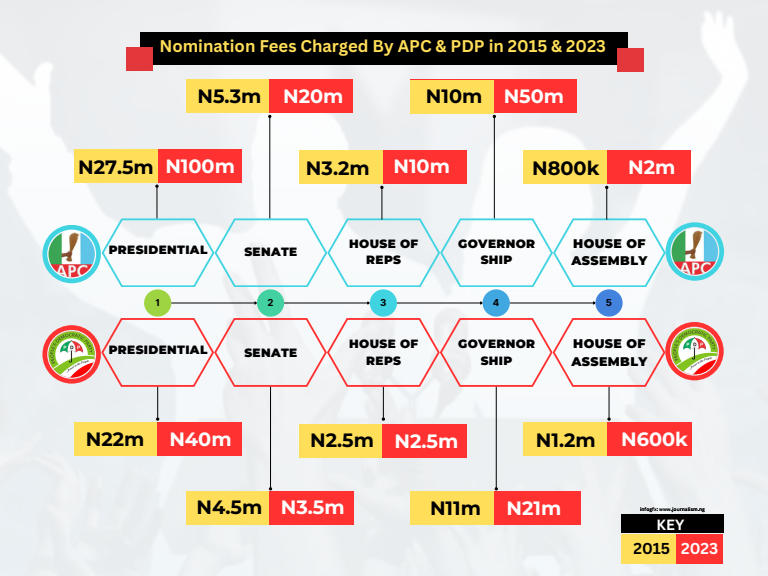
In Partnership with

In this report, JULIANA FRANCIS examines how money limits and discourages women from political participation, with the report throwing up likely solutions.
She is a stickler for punctuality. She and the reporter had agreed to meet at Radisson Blu, Ikeja, Lagos State at a particular time and she was already seated and waiting, calmly taking in the ambience of the ground lounge of the hotel. It is difficult to believe that she has spent a gruelling three hours on a radio programme that day, fielding questions from Nigerians, before heading out to the hotel.
It was smiles when she sighted the reporter, illuminating and softening her serious-looking face as well as revealing white even teeth. She ordered a glass of iced tea and while deftly responding to questions, sipped from her glass.
Oyefusi, who in 2015 contested for the Lagos East Senatorial District seat on the platform of the Peoples Democratic Party, said she joined the party and fought for proper representation of women at all levels, but had to leave to join the Labour Party because the PDP failed to keep to its constitution of proportional representation that all elective and selective positions had to be 35 per cent specially allocated to women.
The discussion soon narrowed down to how money politics was not favourable to women. The lawyer said that the electoral process in Nigeria was very expensive from start to finish, and it affects women politicians.
She said: “Even if parties tell women not to pay for nomination fees, the other fees that surround the election process are killers! She must look for campaign money because the party does not give anything. For instance, in PDP, what the party provides is a polling unit fee and security.
“In Labour Party, you’re on your own, from start to finish because it’s a new party, driven by the Obedient Movement, so you already know what you’re getting into. Women feel threatened and are scared because of the kind of money involved in politics. Although there are other barriers to women in politics, the real killer is how and where to raise money! She must pay delegates and in the first instance, she would have spent N20 million.”
Nigerian women over the years have shown keen interest in nation-building, but so many barriers limit them, though they are a force to be reckoned with. They occupy executive positions in local and multinational companies, but the political space continues to be elusive to many of them.

Women, right from the struggle for independence, stood shoulder to shoulder with their male counterparts, and the Aba Women Riot in 1929 is a significant era and point to note. This was the period women in their hundreds if not thousands protested the draconian policies of the colonial government.
Major political parties in Nigeria during election periods will claim that to ensure they achieve the 35 per cent affirmative action and to encourage women politicians, they will grant waivers to women politicians from buying expression of interest and nomination forms, which are drop-jaw expensive. However, women have described these waivers as Grecian gifts, which disallow them from seeking the elective positions that interest them, thereby limiting them politically.
Nigerian actress, Kate Henshaw, who ventured into the stormy waters of Nigerian politics in 2014, returned to the shore to say: Never again! Henshaw, who ran for the House of Representatives in Cross River State in 2015 to represent Calabar South/Akpabuyo/Bakassi Federal Constituency on the platform of the PDP, was defeated at the primary election, but by then she had spent N35 million. She later said she wished she had channelled the money into buying a house and vowed she will not run for political office again.
Speaking with Pulse Nigeria, she said: “There was one form that was waived for women, and then, of course, you’ll pay party dues, and each consultation it’s money!”
She said her friends pooled N5m for her, while she brought N30 million, making N35 million. Henshaw, exasperated, said: “I didn’t see the need for all that spending. If someone truly wants to serve, it should be from the heart. Everyone was giving money to all the delegates.”
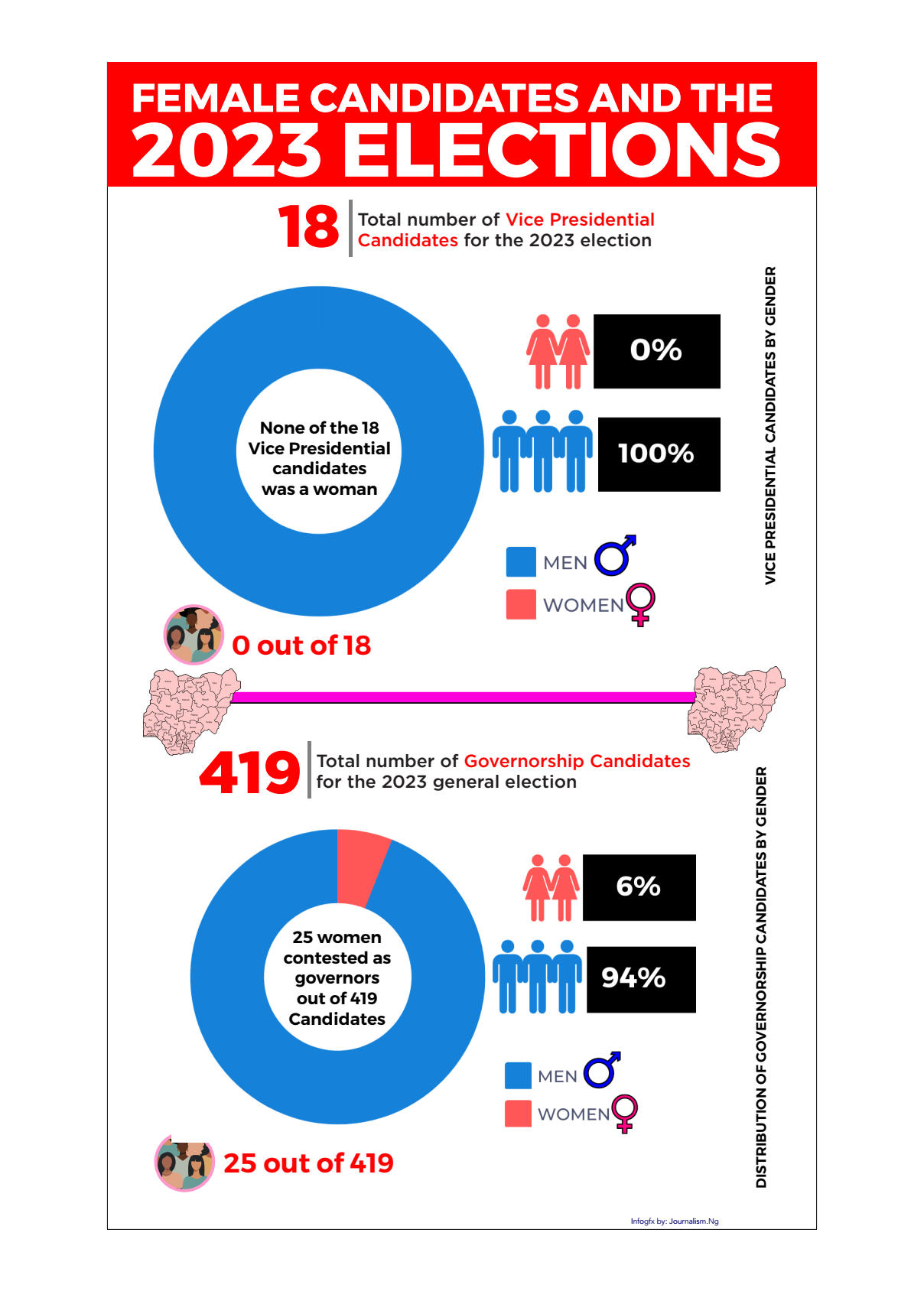
The Electoral Act, 2022 (as amended) has been condemned by political watchers, who believe that it promotes money politics and corruption and paints a picture that only those with money can contest for political positions, thereby eliminating minority groups like women politicians, youth and People Living with Disabilities.
According to Section 88 (2) of the Act, the maximum election expenses to be incurred by a candidate in a presidential election should not exceed N5 billion, while for a governorship election should not exceed N1 billion. Similarly, senatorial and House of Representatives should not exceed N100 million and N70 million respectively.
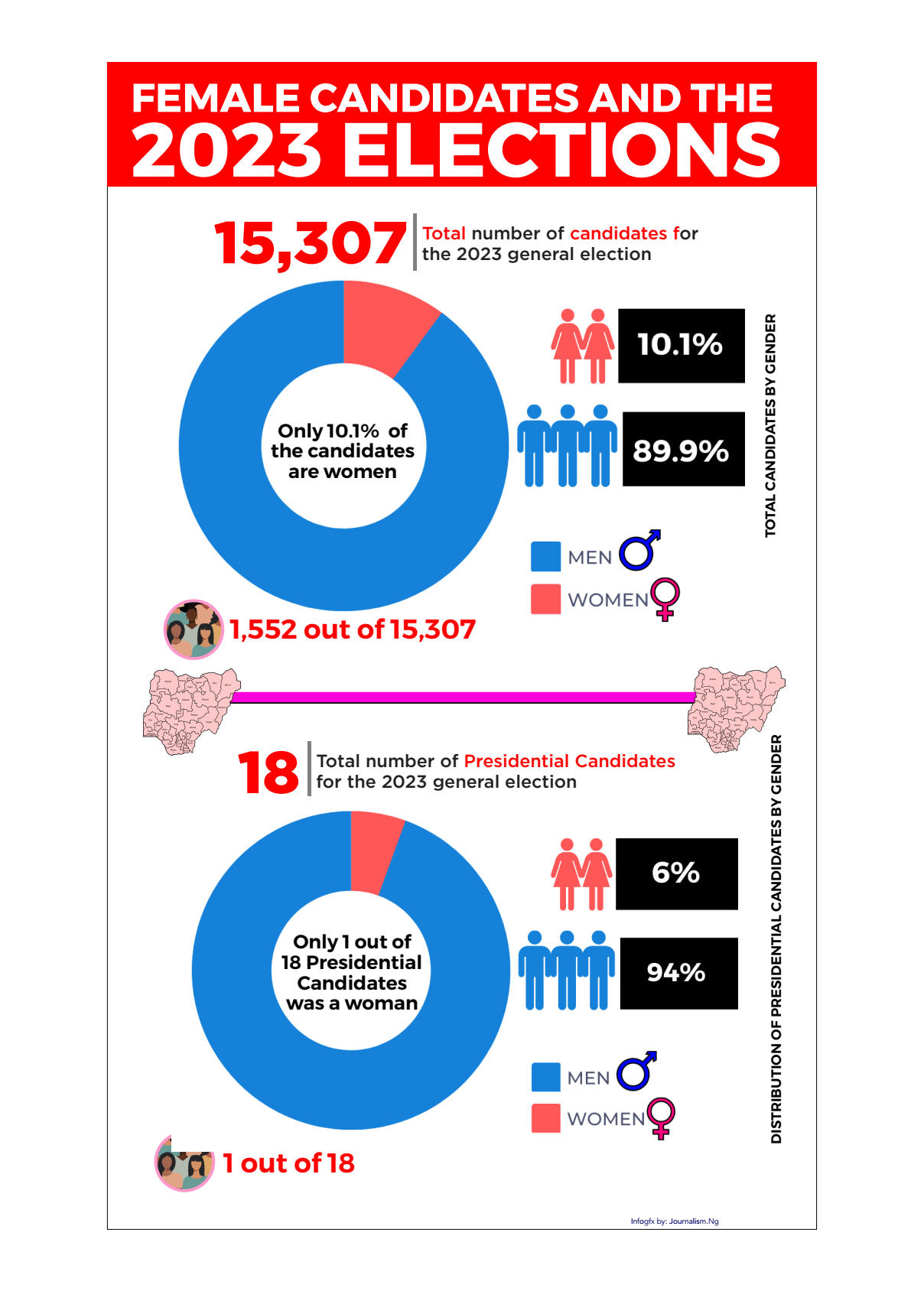
For a state Assembly election, a candidate shall not exceed N30 million, a chairmanship election to an area council N30 million, and a councillorship election must not exceed N5 million.
The Act also states that any politician who intentionally flouts the provision is liable on conviction to a fine of one per cent of the amount permitted as the limit of campaign expenditure under “this Act or imprisonment for a term not more than 12 months or both.”
However, the big political parties have continued to exceed these limits, especially if the money spent on inducing delegates during primary elections is taken into consideration.
Section 226 (1-3) of the Electoral Act attempts to regulate political spending by demanding annual reports of accounts from political parties to the Independent National Electoral Commission for auditing but political parties do not heed these instructions. And no punitive steps are ever taken against them.
In the build-up to the 2023 general election, party delegates were bribed by most of the aspirants with dollars. Thus, it is problematic to calculate the money spent during campaigns and elections in Nigeria.
The Group Political Editor of New Telegraph Newspaper in Nigeria, Felix Nwaneri, said watching the Nigerian political scene over the years has shown that the N5 billion campaign benchmark for presidential candidates amounts to nothing for an aspirant who desperately wants to become the president. He stressed that money would continue to be a major impediment for many politicians, including women.
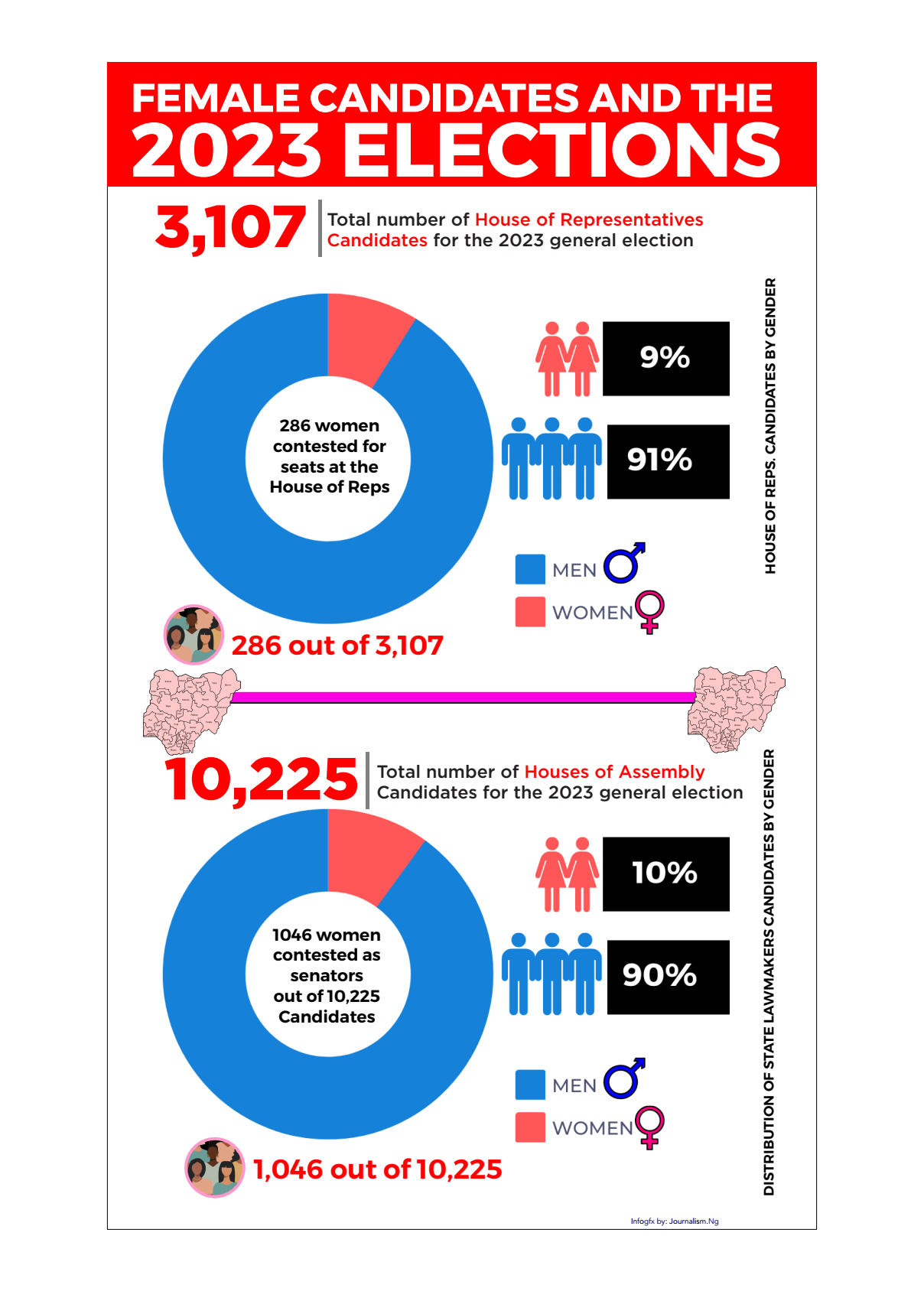
Nwaneri further said: “Most parties grant waivers to women politicians by excluding them from paying for nomination forms, but such female politicians hardly go beyond the primaries due to the menace of vote buying.”
The question then is how many women, who are truly willing to serve can raise needed funds to scale the hurdle of primaries before the main elections in a poverty-stricken country? Against this backdrop, the political space has continued to shrink for women politicians and the consequence is the recycling of the same rich old politicians.
Prof. Remi Sonaiya, the 2015 presidential candidate of the Kowa Party, said money plays a huge role in Nigerian politics because politicians, whether male or female, need it for campaigns and advertising, among other political needs. She said that it was not only women who are edged out of political participation because of money but men also.
Sonaiya decried the amount of money spent on the mere purchase of expression of interest and nomination forms, arguing that the most important stuff, which is service to the nation, had been negated, while politics is now for only the rich. This, she said, makes the playing field unlevelled.
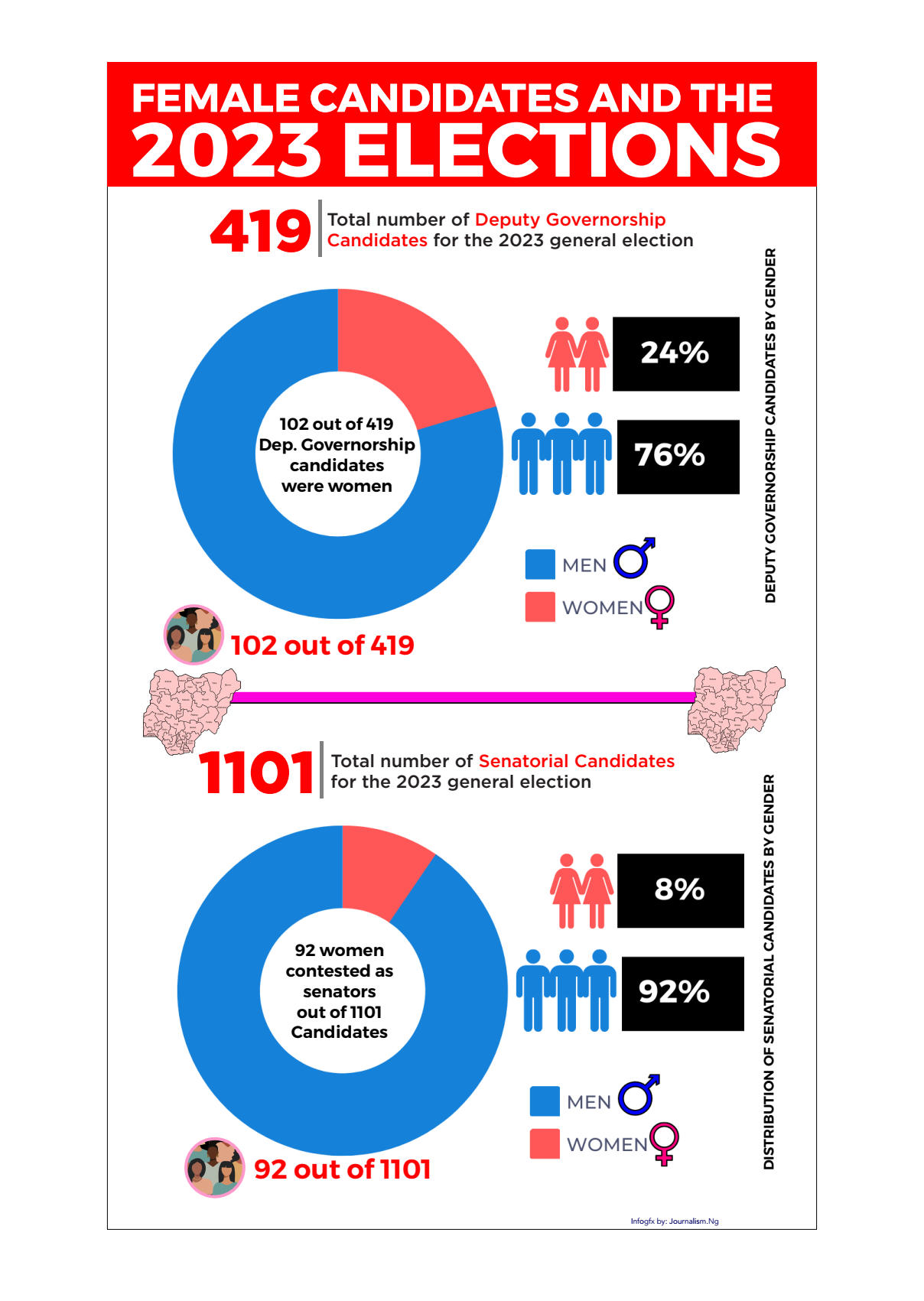
Her words: “For instance, the amount of money that is needed to buy forms, like in the last election, in some political parties is between N100 million and N40 million. I believe that made a statement that only the very rich people can enrol in politics.
“It doesn’t make sense because we need to see politics as an avenue that is opened to people who are capable of service and abilities that will advance the country. Does it make sense to deny them access by putting that kind of stumbling block in their way?
“The incredible role money plays in our politics is also not different from how it affects men. Where is someone like me, who is a professor in a university supposed to get a N100 million for a form? It gives a very bad impression.
“I believe from the start that this is all about money. If you don’t have it then don’t venture into it, and then we see all the reparation to recoup all the money they have spent by stealing when they get into position.”
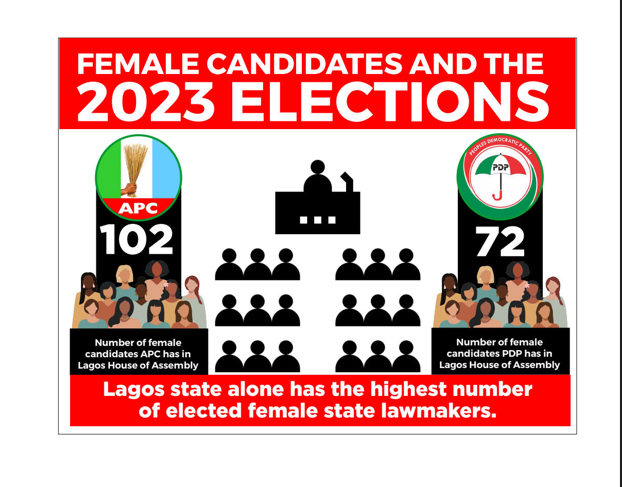
Sonaiya recalled that during her campaign in 2015, she spent about N6 million, which was raised by her husband, friends and family. She added: “I didn’t put myself under pressure because I wanted to be like other politicians. I ran my campaign according to my conviction.”
Dr Abiola Akiyode-Afolabi, a lawyer and civil rights activist, who is the founder and Director of Women Advocates Research and Documentation Centre, said that money had always been a huge factor in determining who wins what elections in Nigeria. She stated it is a huge challenge and most women struggle to get their campaign finance from their political party, and even when they become candidates the political party also neglects them.
Akiyode-Afolabi said: “These women do not get the kind of support they would expect to get.”
She argued that Nigeria elections had become so costly that if someone was not into politics before, as an aspirant, the person might not be in a position to be able to pay what the political space comes with. She also noted that the current Electoral Act has increased spending money to about 400 per cent, which affected the cost of forms.
She said: “Most women cannot afford it! Therefore, you don’t see them contesting for that position. If you look at the Senate, you’ll see very few women. In the House of Reps, there are few women as well. When you then get to the House of Assembly, they are not much and we also have the local government level, you’ll see fewer women coming for the chairmanship.”
The Chairman of the Independent National Electoral Commission, Prof. Mahmood Yakubu, at a public forum in 2022, stated that Nigeria’s democracy was being threatened by the predominance of money politics. He said: “The influence of money on politics is becoming more present and the risk is that ours may soon become a plutocracy for the rich rather than a democracy for the people. The way money is exchanging hands is a source of concern.”
Solution
Rommy Mom, a human rights lawyer and President of Lawyers Alert, who is also an international development expert, said money politics fan the ember of corruption in governance. He opined that a politician who spends a lot on campaigns and elections will want to recoup after getting to office.
Mom said that it was not a bad idea if Nigeria can go the way of Rwanda. He explained that the game changer for Rwanda’s women politicians was that the country had a woman-friendly, who ensured that many women were appointed to political offices.
He explained: “For instance, after Bola Ahmed Tinubu is sworn in and he can decide to take 70 per cent women as his cabinet. It all depends on what he wants! As the president he has the power and that was what happened in Rwanda.
“The president is equipped and supports empowering women, given the history of Rwanda. It all boils down to the person in government. The president of Rwanda is women empowerment friendly.”
Mom, who said it would be difficult to rule out money politics for now in Nigeria, noted: “What we can do to gradually shape this balance through affirmative action. For example, where women should occupy a certain level of appointee offices since the election is different from appointee offices.
“Power originates from political parties, and we must also take these issues down to the political parties. It will be through factoring women into elections, free forms, and others. So, affirmative action is the only way out.”
Akiyode-Afolabi said Nigeria’s legislature can encourage more women in political participation if it goes the way of Rwanda. She said: “In a country like Rwanda, they have 68 per cent of women in parliament. It didn’t come by accident; it was through legislation. Likewise in Uganda where they have 35 per cent of women, you can see other countries where women are gradually entering into political space.
“South Africa has a good example of women who are role models for a lot of women who enter into politics and Kenya recently adopted the two-thirds to increase the number of women in politics. There is also Sierra Leone. Nigeria should not in any way be an exception in that regard. Nigeria should also be able to legislate women into power.”
Akiyode-Afolabi also wants Nigeria to push for regulations of money politics. She said she had observed an election in Liberia before and there was a mobile tribunal on the day of the election.
She said: “If you commit any malpractice on election day you are subjected to a court and can go to prison. “We need to decontextualise our political and campaign financing in Nigeria to look at the poverty that is surrounding the country, and that is why it is only the rich that gets into political offices; they can afford to pay for the ticket, pay for the campaign. We need to demonetise Nigeria’s election before the election can become a useful tool for gender equality.
“Women cannot participate in an electoral process that is this expensive! Therefore, it is important to ensure that due processes are followed, and audit is submitted. Then there will be a level playing field and women can be able to participate and become candidates and contest favourably in political space. Also, public funding of elections can help women and the essence of this is to increase the participation of women in politics.”
Another way to help women politicians, said Akiyode-Afolabi, is private funding, which said was another way of political funding. “If properly regulated, it will be a thing of honour to approach corporate groups to support their campaign and all of that. Brazil has something close to that,” said Akiyode-Afolabi.
Sonaiya on the other hand suggested that women should cultivate the habit of making donations in support of women politicians. She further suggested resolving the political stalemate for women was for all to advocate for the resolution of some issues by law for women in all legislative houses: Senate, House of Representatives, and state Houses of Assembly.
She emphasised: “When the Gender Bill was presented at the National Assembly, what happened? They rejected it! We must pursue that now. We must pursue also having some number of seats reserved for women. This is not something that has not been done before. Some countries have done that, and they have vouched that it has greatly benefited them.
“Another point is that we need to make politics less lucrative. People gain too much by going into politics. There are countries where they hardly pay anything to their politicians because they believe people go into politics to serve. It’s not about making money. Our politicians have so much money that falls into their hands. When we make politics less lucrative, we would have genuine people who will come out for it, and I bet you there will be many women among them!”
Nwaneri, on his part, said beyond granting women waivers, parties must make it a matter of policy to grant women special consideration by reserving a certain percentage of their tickets to women.
He added: “Parties should come up with measures or policies to assist women with funds during the campaigns. Parties can say that 30 per cent of what they got from sales of forms should be channelled towards women during campaigns. The leadership of the various parties should educate members that politics is not about money, but about service, and once a party identifies women who have the capacity, the women should be given maximum support,” he noted while adding that there should be enforcement of laws guiding campaign spending.
Dr Damilola Agbalojobi, a political scientist and gender specialist, who is a lecturer at the Obafemi Awolowo University, Ile-Ife, Osun State, while speaking with The Conversation Africa, an online news medium, opined most times women do not have money for forms and that election campaigns in Nigerian were exorbitant. Agbalojobi thinks that legislative changes were crucial for improved women’s representation.
She holds the conviction that a quota system that “reserves a fraction of electoral positions for women can be legislated. Financial support is crucial. Some women can’t afford to buy party forms. When payment for forms is waived for women, they are often made to step down for the man who has paid. Women need financial support that will not impede on their rights to participate or vie for positions.”
Henshaw wants Nigeria to borrow a leaf from Rwanda, stressing that women have the knack for making a difference. She also said that now, more than ever, affirmative action needed to be followed to the letter.
Oyefusi said that the Electoral Act should go beyond placing limits on political party spending to cleansing the system. She said: “We must bring in new laws that monitor the party that operate within the party itself. We must bring in real laws that force the hands of the party to implement their constitutions. There is a lot of rebuilding that is needed in this nation before our laws can work for women. If there are fewer women in the Senate, their voices will be drowned during discussions on matters and affect women and the girl-child.”
A former Minister of Women Affairs, Yom Josephine Anenih, said on the issue: “I am tired of agonising over and over. I wish there is something that will make our participation real!
“Some of these things we are talking about sound like cliché to me because I was looking at the number of women who got into the executive and we have six women as deputy governors. That is something!
“How did they get there? Those are the things we should start exploring because I’m sure they too did not have money like I didn’t. What got them there? What did they do differently instead of crying that they don’t have money? Money politics is common to both men and women; I want us to start thinking about provisions that can change the narrative because it’s obvious that money is not everything.”
There is no arguing the fact that money remains one of the greatest challenges militating and limiting women’s participation in politics, but the situation is not hopeless. There is a need for Nigerian lawmakers to become intentional in legislating more women into power and the government should ensure that laws regulating political spending be followed to the letter with punitive measures meted to those that failed to comply.
Most importantly, the Nigerian government should stop paying lip service to affirmative action and ensure it actions it by following and emulating the template adopted by countries that now have more women in parliament like Rwanda. Political parties should ensure elective positions as promised to women in their constitutions are complied with.
Although it is applaudable that most political parties give waivers to women concerning expression of interest and nomination forms, these waivers should stop being used as a double-edged sword to kill women’s desires for certain elective positions.
Women politicians who are already in parliament should speak for other women politicians and give tips on how women can overcome hurdles hindering their participation.
Women-focused groups, organisations, and politicians should be deliberate in donating and contributing toward supporting women politicians irrespective of political party affiliations, because in the end, having one voice and goal as women will be the greatest yardstick to catapult more women into parliament. The mantra now, more than ever, should be: “All for one, one for all.”
This article is part of the African Women in Media (AWiM)/Luminate Young Women in Politics Programme.
We’re not gonna spam. We’ll try at least.

Copyright 2020. African Women In Media
Copyright 2020. African Women In Media
Recent Comments